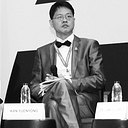What Happened: Sam Altman Ousted
Today’s hottest news undoubtedly revolves around Sam Altman being ousted from #OpenAI. Just days after shaking hands with the Thai PM at the APEC event, things have taken a dramatic turn.
From what I’ve gathered in analyzing the news, the most likely cause seems to be conflicts at the board level. Experienced board members like Elon Musk, Reid Hoffman, and Will Hurd have sequentially resigned, leaving Adam D’Angelo.
Currently, the board is split into two main factions: Sam and Greg (who also resigned with Sam) on one side, and Ilya, Adam, Tasha, and Helen on the other. The conflict appears to stem from a difference in approach: “move fast” versus “proceed with caution.” In Silicon Valley’s eyes, AGI is within arm’s reach. Leading AI models in the pipeline, like OpenAI’s #GPT5, Google’s Gemini, and Amazon’s Olympus, all boast 1.5–2 trillion parameters (compared to GPT-3’s 175 billion and GPT-2’s 1.5 billion). While GPT-4’s exact parameter count is unknown, it’s speculated to have 8 sub-models, each with 220 billion parameters, totaling 1.76 trillion, connected by a special AI called Mixture of Experts (MoE). If GPT-5 follows this trend, it could have upwards of 16 trillion parameters.
The issue now is that one half of the AI industry leaders, like Elon Musk, Geoffrey Hinton (who just left Google), and Max Tegmark, warn about the dangers of AGI. They highlight the “latent capabilities” of Generative AI, which even creators may not fully comprehend. On the other hand, figures like Yann LeCun (AI head at Meta) and Andrew Ng (former Google Brain, now at Coursera and http://deeplearning.ai) believe these concerns are exaggerated.
Hinton recently commented that AI is like a dragonfly — initially aquatic, but eventually it sprouts wings and flies. The question is, if AI is dangerous, like Hitler as a child, would we travel back in time to “eliminate” young Hitler?
Altman, a part of Y Combinator, rose rapidly through the ranks. He has a knack for navigating between rapidly scaling startups and burning through resources, especially capital. OpenAI is on a race against time, recently investing tens of millions to poach researchers from rivals like Google DeepMind, who are engrossed in projects like Gemini. This doesn’t even account for massive investments in #GPU or cloud services, where OpenAI, without Microsoft, would lag behind Google and Amazon with their established cloud bases.
In Altman’s view, OpenAI needs to move faster, and concerns about #AGI #AIsafety might not be as pressing as finding a balance between rapid growth and resource consumption. Ilya, who’s been leading AI projects, now heads the “Superintelligence Alignment” team and seems to have made the final call, breaking the political stalemate in the boardroom and shifting allegiances.
As a result, with the balance shifted, the board vote turned 4–2 against Altman, leading to his ousting, followed by Greg’s resignation. Eric Schmidt, former Google CEO, expressed sympathy and admiration for Altman. Satya Nadella, Microsoft CEO, clarified Microsoft was unaware of OpenAI’s internal strife.
There are a few other theories, but they seem less plausible than this one. Certainly, the clip below claiming GPT-5, under code name Prometheus, seized power is a parody — the least likely scenario. This clip was created using OpenAI’s latest API, announced just days ago, with an eerie “onyx” voiceover.
Latest response from Greg
